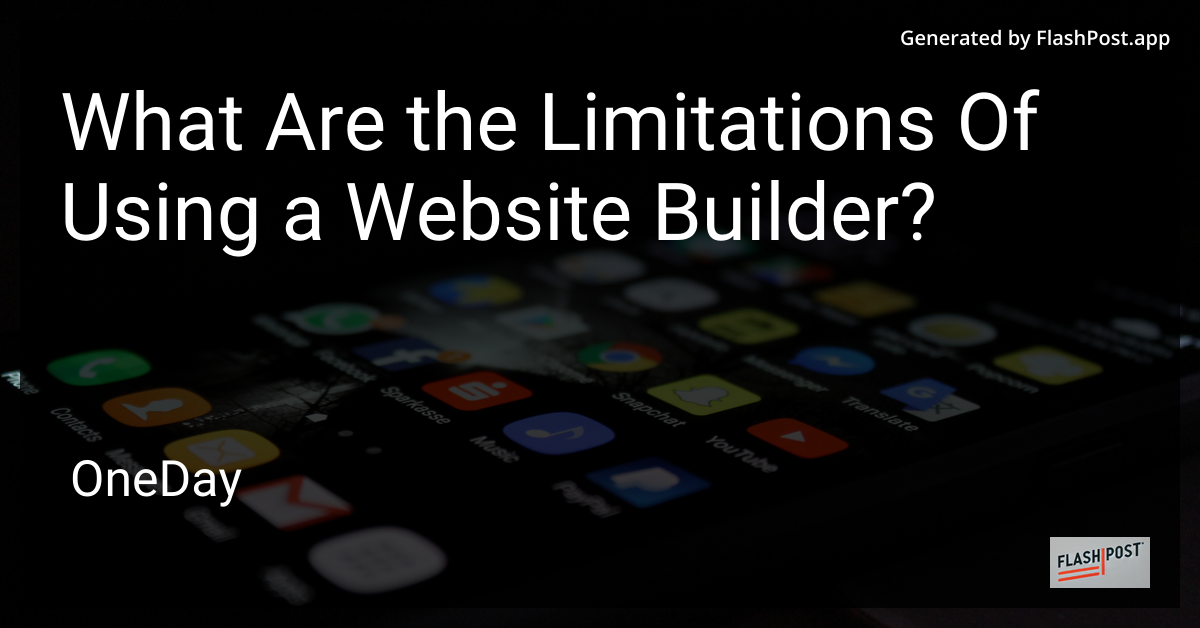
Website builders have become the go-to solution for entrepreneurs and small businesses looking to establish an online presence quickly and cost-effectively. While tools like Squarespace, Wix, and Weebly make it easier than ever to create a professional-looking website without any coding knowledge, there are inherent limitations to these platforms that users should be aware of.
Limited Customization
One of the most significant constraints of using a website builder is the limited customization options. Although these platforms offer a variety of templates and designs, users often find themselves restricted when trying to adjust specific elements or implement unique features. Users who require extensive customization may need to look into more flexible solutions like the Theme Builder Elementor, which offers greater control over design elements.
Scalability Challenges
Website builders are generally ideal for small-scale projects. As your business grows, you might hit scalability limitations due to the platform’s coding and structural constraints. High-traffic websites often require more robust backend solutions that can handle increased loads. Custom-built websites using frameworks like Laravel can better cater to growing needs. For those interested in expanding their backend capabilities, exploring tools such as the Laravel Form Builder and the Laravel Query Builder might be necessary steps.
SEO Limitations
SEO is critical for driving traffic to your website, and while website builders do offer basic SEO tools, they frequently fall short of providing the sophisticated SEO customization that a dedicated SEO professional might require. This limitation can affect your site’s visibility on search engines, impacting potential reach and engagement.
Performance Issues
Website builders often have performance inefficiencies because they contain many extraneous features and scripts to cater to a wide range of users, which can lead to slower page load times. Slow websites can negatively affect user experience and SEO, underscoring the importance of performance optimization—a feature that is generally more controllable on custom-built websites.
Limited Third-Party Integrations
While popular website builders have a host of plugins and extensions, they may still fall short in terms of third-party integrations. As businesses evolve, they often require additional tools and functionalities that may not be seamlessly supported by website builders.
Conclusion
Website builders offer a convenient, user-friendly platform to quickly create and launch a website, but they are not without limitations. Users seeking extensive customization, scalability, and high performance might need to consider alternative solutions. Investing in a more flexible framework like Laravel can help overcome some of the inherent constraints of website builders, allowing for more tailored and scalable web applications.
Understanding both the benefits and limitations of website builders can guide you in making the best choice for your online presence. For more advanced needs, exploring platforms and frameworks like Elementor and Laravel might provide the necessary advancements to fully realize your website’s potential.